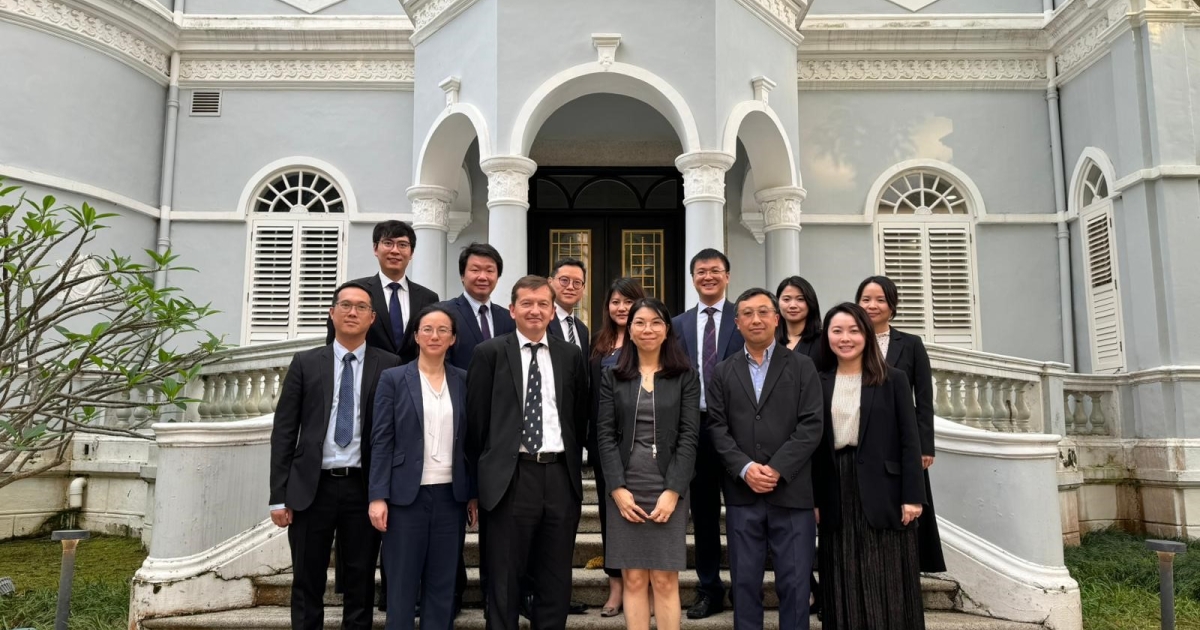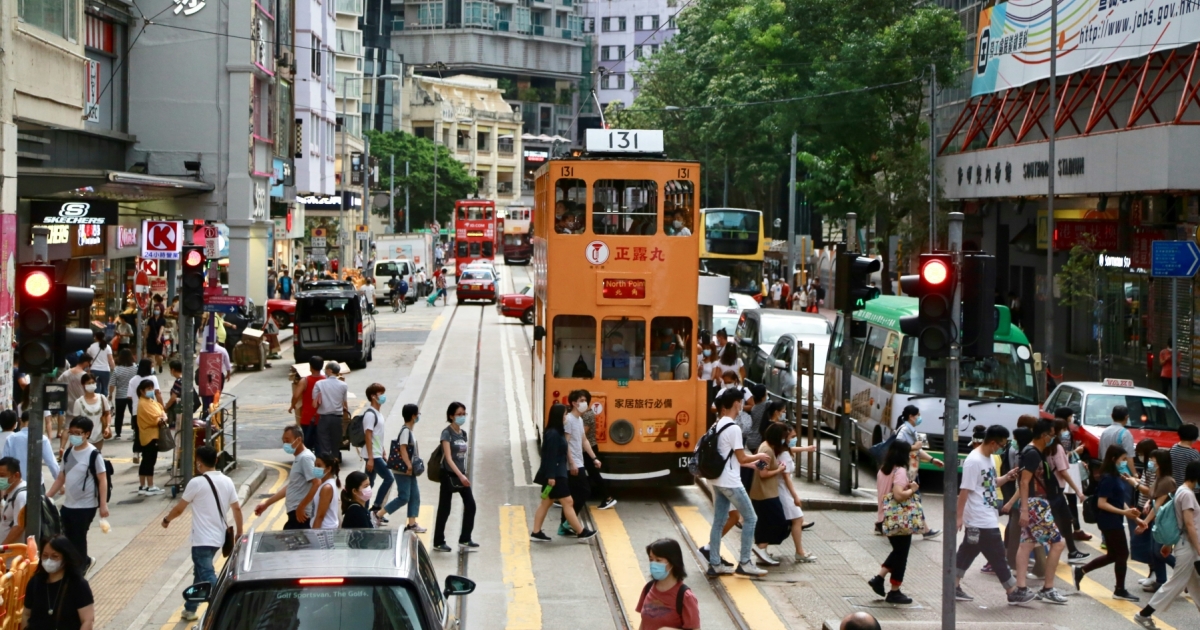TAIPEI, Taiwan — Marty Chang, a senior graphic designer for Taiwan’s Apple Daily for more than 15 years, walked out the door for the last time late one night in May. After drawing nearly a thousand front pages for the daily newspaper that used to be a must-read for regular Taiwanese, corporate executives, and officials, he was hauling all of his possessions out. On an island of 23 million people, the print run was 700,000 in its height. Apple Daily announced the closure of its print edition on May 18, laying off nearly half of its Taiwanese workers. It was five weeks later, on June 24, when its Hong Kong counterpart was permanently closed. In a filing with the Hong Kong Stock Exchange on Tuesday night, Next Digital, the parent company of Taiwan’s Apple Daily, stated it is in talks with potential purchasers to sell its Taiwan business. “We saw some signals,” Chang told Nikkei Asia, “but we didn’t realize the day would arrive so soon.” “For quite some time, advertising income has been in serious decline, partially due to political pressure on advertising agencies, luxury brands, and others who did not dare to promote for fear of political backlash.” Jimmy Lai, the founder of Next Digital in Hong Kong, which owns Apple Daily and Next Magazine, is currently imprisoned for his open support for the pro-democracy movement. In the last 20 years, the media tycoon who owned newspapers, magazines, and video platforms in Hong Kong has also played a key role in molding Taiwan’s media sector and ideals. In the early 2000s, Lai expanded Next Digital into Taiwan. Former Taiwanese president Chen Shui-son-in-law bian’s had broken up with a longstanding girlfriend in 2001 to marry the first daughter, according to the debut edition of Next Magazine, a weekly that merged celebrity gossip with investigative journalism.
In Taipei on May 2, 2003, a Taipei cameraman reads the first Taiwan edition of Hong Kong’s Apple Daily newspaper.
The first medical practitioner to die from SARS was featured on the top page of Taiwan’s Apple Daily in May 2003. Both journals reported numerous scandals and socio-economic crises involving politicians, industry leaders, and celebrities in the years that followed. Both Quanta Computer Chairman Barry Lam and Foxconn Technology Group Founder Terry Gou attempted to prevent Lai’s reporters from probing into their personal lives. “Media is difficult — only cutthroat people like me can succeed,” Lai once told Next Magazine. “I wouldn’t do media if my friends and how others perceive me were so essential. It can’t be that my media won’t report on someone who is a buddy of mine.” President Lee Teng-controversial hui’s national security fund was originally exposed by Next Magazine in 2002, a day after the National Security Bureau raided the reporter’s office and residence. That week, 320,000 copies were sold, a new high. Apple Daily went undercover for months to find out how a big meat producer and distributor pumped water into cows to make them fatter. The 2020 SOPA Scoop Award was given to a 10-month investigation into fraudulent agricultural speculation. The editorial strategy was to spare no one. More than 250 lawsuits were filed against Pei Wei, the magazine’s president for 15 years. “Lai is unquestionably the essence of Apple Daily,” Louis Hou, a former Apple Daily investigative journalist, told Nikkei. “In the face of the mighty, he epitomizes the spirit of fearlessness.” As long as there were extensive fact checks, Apple Daily was not afraid to print unflattering pieces about politicians or corporations. It was inspired by Lai’s own example.”
On June 17, police officers assemble at the Apple Daily headquarters in Hong Kong. According to Reuters
Apple Daily’s sensationalist approach, which tore up journalism guidelines, was chastised by several. Lai assimilated paparazzi culture and titillated readers with raunchy gossip, breaking news, and a slew of scoops — everything the staid United Daily or China Times had never delivered in the preceding half-century — and this earned him enemies in some places. One of Taiwan’s most prestigious financial publications has an unofficial rule not to hire Next Digital veterans since they were rumored to be gossipers rather than reporters. Apple Daily, on the other hand, was unstoppable and grew to become Taiwan’s largest and most powerful newspaper, with an average daily circulation of 510,000 in 2009. However, over the last decade, its finances and fortunes have deteriorated. According to Apple Daily’s annual report, there were 12 million non-returning users in 2019. Its initial success was also imitated by competitors. The Liberty Times, United Daily, and China Times all went for bigger headlines, bigger photos, more colloquial language, and plenty of celebrities and gossip. Ho Hsu-chu, a former Apple Daily senior editor and chairman of Fu Jen Catholic University’s Journalism and Communication Studies department, followed Next Digital’s meteoric rise. Ho told Nikkei, “In the past, the media provided audiences information that they thought they should know.” “Audience service is a primary priority for Next Digital. To promote their business, they produce news that people want to read… Everyone sought to learn a thing or two from Apple.” “Everyone was terrified when Next Magazine and Apple Daily first appeared two decades ago,” a veteran editor who previously worked for Next TV and other news companies told Nikkei. “For a long time, every editor had to read Apply Daily and Next Magazine in order to hire their own reporters.” That’s where they know how to get scoops and break news.” When Lai arrived, the business was “extremely cautious,” according to Lea Yang, a senior writer who worked at Apple Daily in its early days, but they sensed revolutionary change. “As a reporter with Next Digital, you don’t feel the need to be concerned when you’re reporting the truth, regardless of who it’s about,” Yang told Nikkei. “Even if you are no longer an employee, the company will send its lawyers if you are sued for reporting.” Yang recalls Lai personally supervising Apple Daily’s business coverage and his Post-it notes on the pages when the publication first arrived in Taiwan. “He asked us to explain why we solely covered major tech corporations that seemed to be far apart from the general public,” she explained. “We started covering small and medium businesses as well.” Why not teach folks how to get to good eateries if we report about them?” “Lai’s objective was to provide readers with a variety of interesting and eye-opening experiences,” she explained. “Some of Apple Daily’s initiatives were really inventive. Even though the expenses were incredibly expensive, I remember the team we had traveling across the world visiting all of the world’s expos.” Lai expanded his Taiwanese empire in the late 2000s with Next Animation Studio and Next TV. When CNN picked up on the colorful video detailing Tiger Woods’ indiscretions and confrontations with his wife, the animations gained international recognition for Next Digital. Conan O’Brien, the host of the American talk program Conan, was impressed by cartoons created in 48 hours that took his team six weeks to create. There were also detractors. Some people were concerned that Next Digital’s graphic renderings of crime and disaster scenes might encourage violence and pornography, as well as constitute a detrimental influence on youths. “I am full of guts and I dare,” says Next TV’s slogan. “Only pursue truth, not profundity,” was Next Magazine’s core focus. Taiwan’s Apple Daily alone employed up to a hundred graphic designers in its height. “In three to four hours, we needed to construct a scene with visuals for important news events,” Chang explained. “Apple Daily’s reporting and layouts were deemed sensational by some, but our purpose was to accurately convey what had just occurred.” The style of Apple Daily influenced how Taiwanese people read. “The word ‘raped’ appeared 13 times in headlines in one edition, and that was something a lot of people couldn’t take,” Jean Hsieh, a former Apple Daily writer and editor, told Nikkei. “However, working there in a variety of divisions taught me one key lesson: a reporter must have honesty.” You should never accept anything from anyone or any company that you are reporting on, and you should speak with as many people as possible.” You’d be miserable and in the wrong place if you tried to compose beautiful, literary rhetoric. We always tried to write in a straightforward manner so that the general public could comprehend what was going on.” Lai treated his reporters and editors with respect and paid them more than their rivals in the industry, but he was demanding and expected the finest standards in return. Staff were instructed to “carry an axe” to editorial meetings, where employees from various departments frequently evaluated and challenged one another, pointing out shortcomings and suggestions for improvement. As a result, a fiercely competitive climate arose.
In October 2016, outside of Taipei’s metro stations, young models aggressively promote copies of the new Sharp Daily newspaper. Jimmy Lai, a Hong Kong media mogul, published the free newspaper in an attempt to saturate the commuter market. Associated Press
Another practice was “pruning the Apple tree,” in which nearly every year 5% of unproductive employees were let go.
The corporation valued focus groups in which ordinary readers of various ages were asked to evaluate content and layout. According to former and present employees, those viewpoints were given a lot of weight. Columns and subjects that received a large number of negative votes were removed. A former top editor told the Nikkei, “Lai’s approach was to hire far more people than other media, and to gamble large on technology and advanced equipment.” “When it came to creating a new company unit, he was never concerned about costs. It seemed as though an extraterrestrial had arrived. He was always eager to attempt new things and adapt, never content to rest on his laurels.” After the demise of Lai’s media empire, Taiwan’s Apple Daily online remains the last bastion of his empire.





